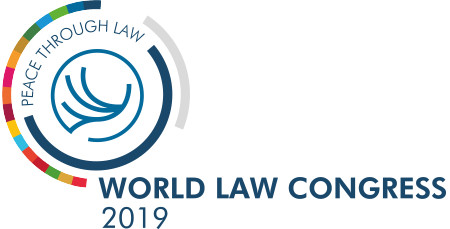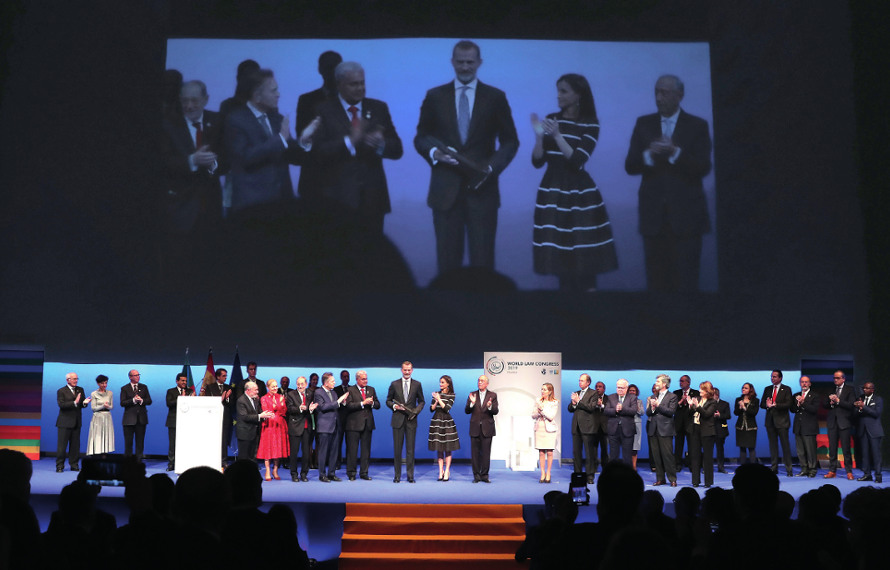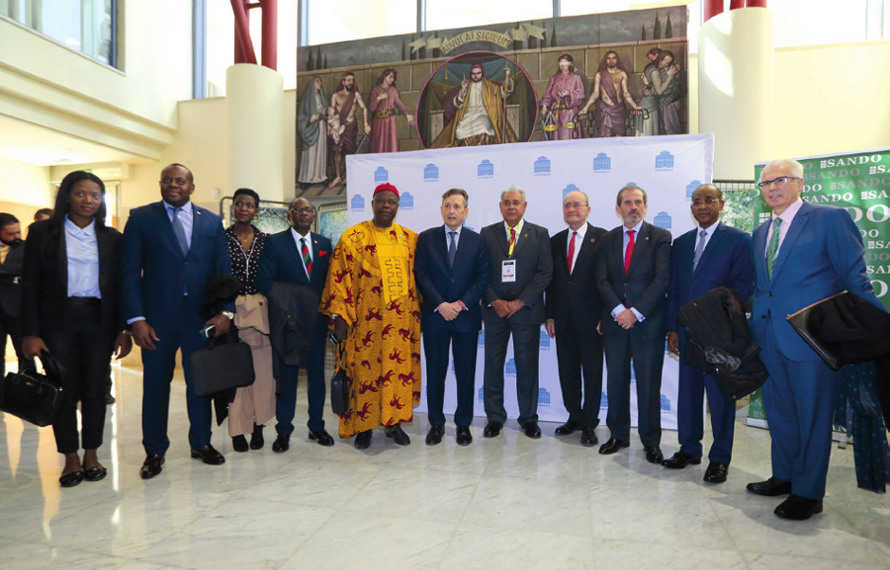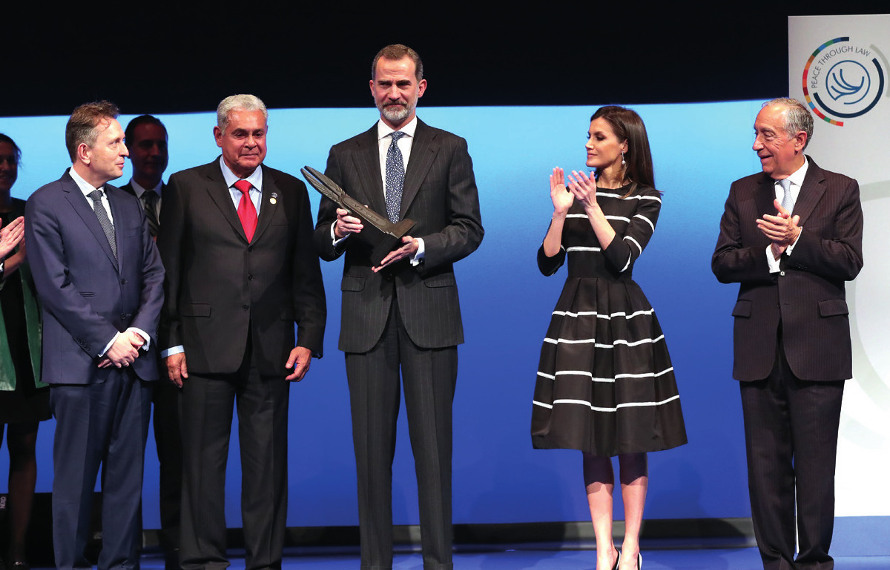Ignacio Buqueras writes the chronicle of the delivery of the World Peace and Liberty prize to the King of Spain
 Ignacio Buqueras, full academician of the Royal Academy of Doctors of Spain and assiduous collaborator and full academician elected of the Royal European Academy of Doctors-Barcelona 1914 (RAED), makes in the last issue of the magazine “Diplomacia”, corresponding to February 2019, a chronicle of the concession to King Felipe VI of the World Peace and Liberty prize, the so-called Nobel of Law. An event that was held at the Royal Theatre of Madrid. Awarded by the International Association of Jurists, in its more than half a century of history only three distinguished personalities have received this distinction: René Cassin, Winston Churchill and Nelson Mandela.
Ignacio Buqueras, full academician of the Royal Academy of Doctors of Spain and assiduous collaborator and full academician elected of the Royal European Academy of Doctors-Barcelona 1914 (RAED), makes in the last issue of the magazine “Diplomacia”, corresponding to February 2019, a chronicle of the concession to King Felipe VI of the World Peace and Liberty prize, the so-called Nobel of Law. An event that was held at the Royal Theatre of Madrid. Awarded by the International Association of Jurists, in its more than half a century of history only three distinguished personalities have received this distinction: René Cassin, Winston Churchill and Nelson Mandela.
The laudatio of the winner corresponded to Felipe Gonzalez, president of the Spanish Government between 1982 and 1996, who highlighted the role of Felipe VI in his firm defence of the Spanish Constitution and the rights of all Spaniards. “We have never enjoyed a Head of State more clearly committed to the constitutional values of pluralism, diversity and respect for individual liberties”, he said. For his part, the president of Portugal, Marcelo Rebelo de Sousa, who also participated in the ceremony, influenced the words of González. “Let us take an example of the King to defend democracy, peace, tolerance and freedom”, he added.
Felipe VI considered the prize to be “a recognition of the Spanish constitutional democracy, and to all, men and women, who with the impetus of the immense majority of citizens carried out the political transition to democracy, made possible the approval of our Constitution of 1978 and have veiled and ensure its validity, integrity and continuity during the 40 years that has governed life of Spain in freedom”. The King reiterated his firm commitment in the defence of the Rule of Law. “In a democratic regime, it is not only the guarantee of rights and freedoms, but an essential pillar of the regular functioning of institutions and the foundation of coexistence and progress in peace and freedom of its citizens”.
For Felipe VI, “the Constitution has been, is and will be the guide of all my actions, and the independence and neutrality of the Crown, my permanent civic commitment with Spain, at the service of democracy and freedom”. Hence, the monarch also called for the defence of a balanced and sustainable economic development, quality education, a real expectation of professional promotion for young generations, genuine equality of opportunities between women and men and the eradication of poverty, following the spirit of the Magna Carta itself.







